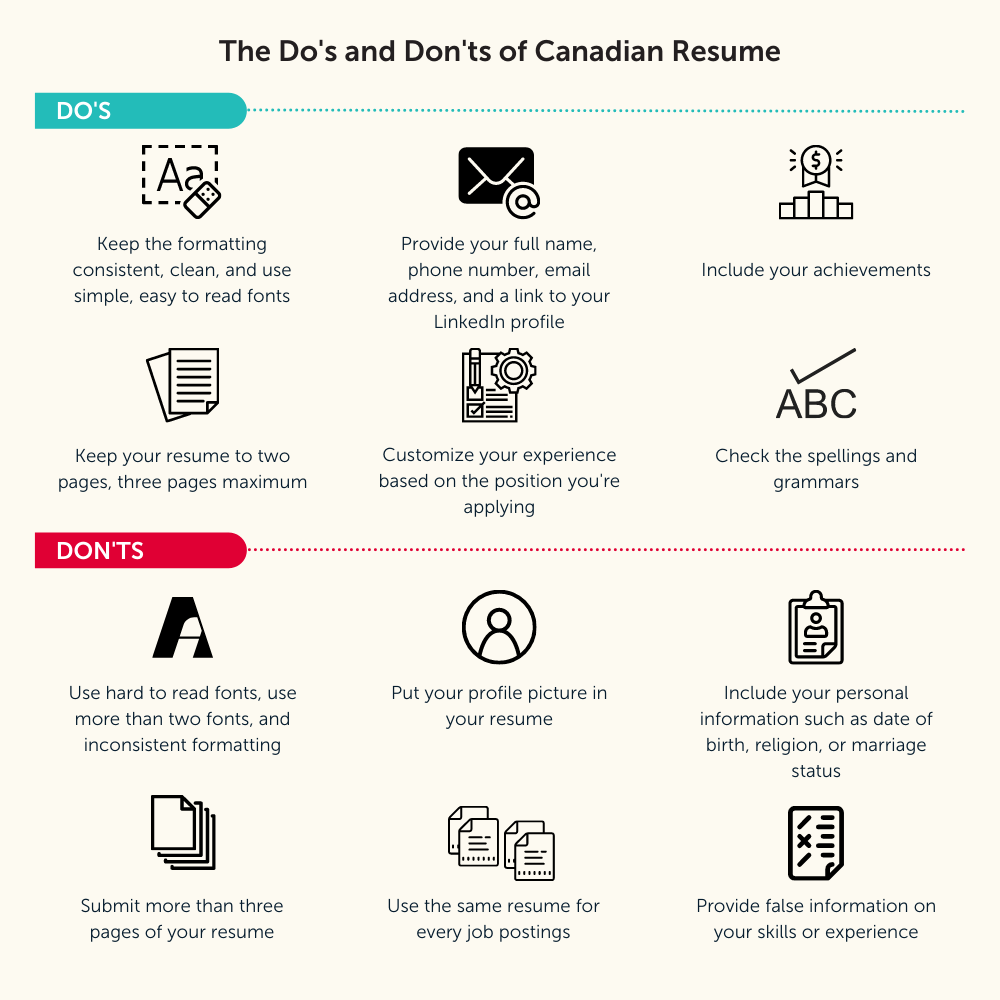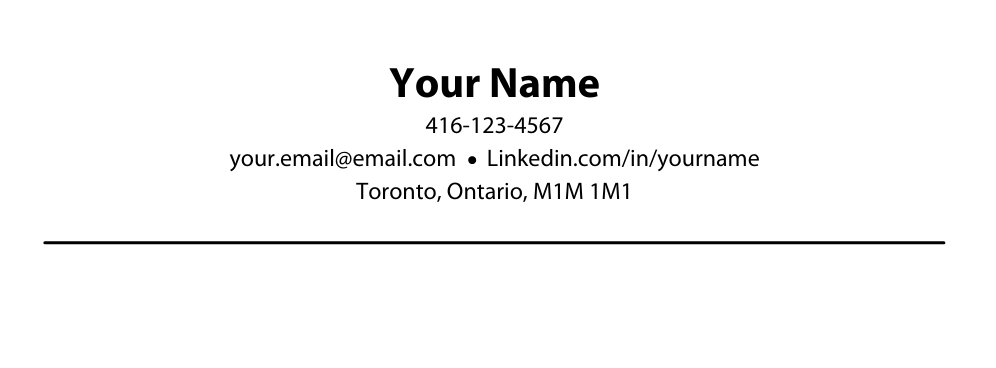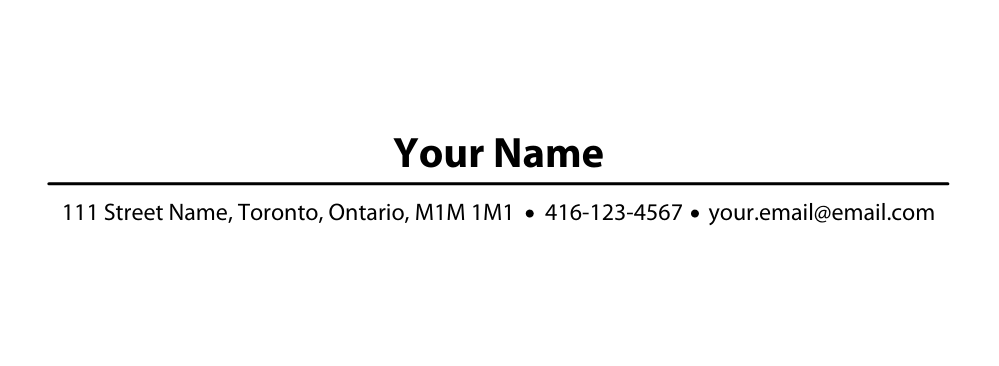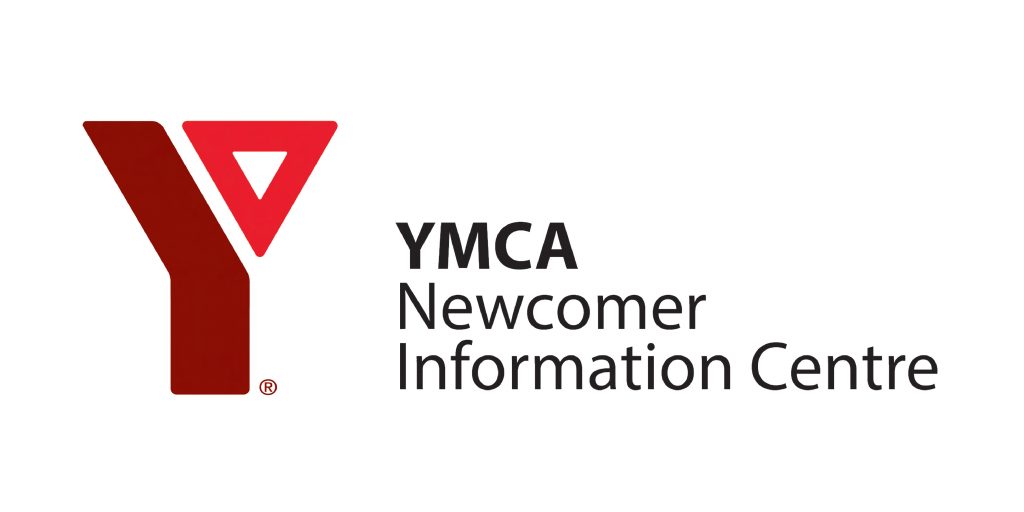What you need to know about Canadian Resume
When you are applying for a job in Canada, you will need to submit a Resume. It is different from a CV. A resume is a summary of your professional qualifications, such as your work experiences, accomplishments, skills, and educational background relevant to the position you are applying for. While a CV contains more detailed and in-depth description of your qualifications and work experiences. In this blog post, I will focus on Canadian-style resume.
From where I’m from, we uses a CV when we want to apply for a job. So, when I first tried to find a job as a newcomer in Canada, I didn’t know about a Canadian-style resume, and I was struggling to find a job. Then I came across a government-funded employment agency that helped me with my resume writing. From there, I learned valuable information on how to write my resume.
So, let me share with you the do’s and don’ts on resume writing to help you understand the basics of Canadian-style resumes.

Use Simple Formatting
When writing your resume, it is better to use neat formatting. Choose a font that is simple and easy to read, such as Arial or Calibri. Avoid using more than two types of font in your resume. The standard font size to use in your resume is between 10-12.
Your personal information
This is the first thing I noticed when I learned about Canadian-style resume. The only personal information you want to put in your resume is your full name, phone number, and email address. If you have a professional LinkedIn profile, you can also add it to your resume. Make sure to use a professional email address. In general, you can use a combination of your first and last name, initials, and numbers, but try to avoid using your birth year for your email. Here are a couple of examples of a resume header as a guide.


Remember, the following personal information should never be in your resume:
- A picture of yourself
- Date of birth
- Age
- Religion
- Marital status
Customize your resume for each job posting and include relevant achievements
It may be a good idea to have a general resume containing all your work experiences and skills you have gained over the years. But a great resume should highlight your skills and accomplishments that show why you are the perfect match for the job. So, when you want to apply for a job, carefully examine the job postings and customize your resume to match the requirements. Make sure to include all your relevant achievements, certifications, and skills to increase the chance of your resume being seen by the hiring manager.
Keep your resume clear and concise and check the spelling
Keep your resume between one to three pages long. It might be challenging if you have more than 15 years of work experience. But it will be best to condense your resume up to three pages.
Always triple-check the spelling and grammar on your resume. Before submitting your resume, make sure to send the file type requested by the employer, for example, a Word file or PDF file. If the recruiters instruct you to send a cover letter with your resume, make sure you also include your customized cover letter.
If you need help with your resume, please feel free to speak with our Information & Referral Specialist. We can provide a referral to a government-funded employment agency to assist with your resume.
We also offer a variety of employment-related webinars for our members, such as:
- Winning Job Search Strategies
- Writing a Job-Winning Resume and Cover Letter
- Creating Highlights in your Resume
- Understanding Canadian Job Postings
- Interview Skills
- Your Road to Employment
- Workplace Culture 101
Feel free to register with us today and speak with our Information & Referral Specialist to get your personalized settlement plan and access our webinars.






